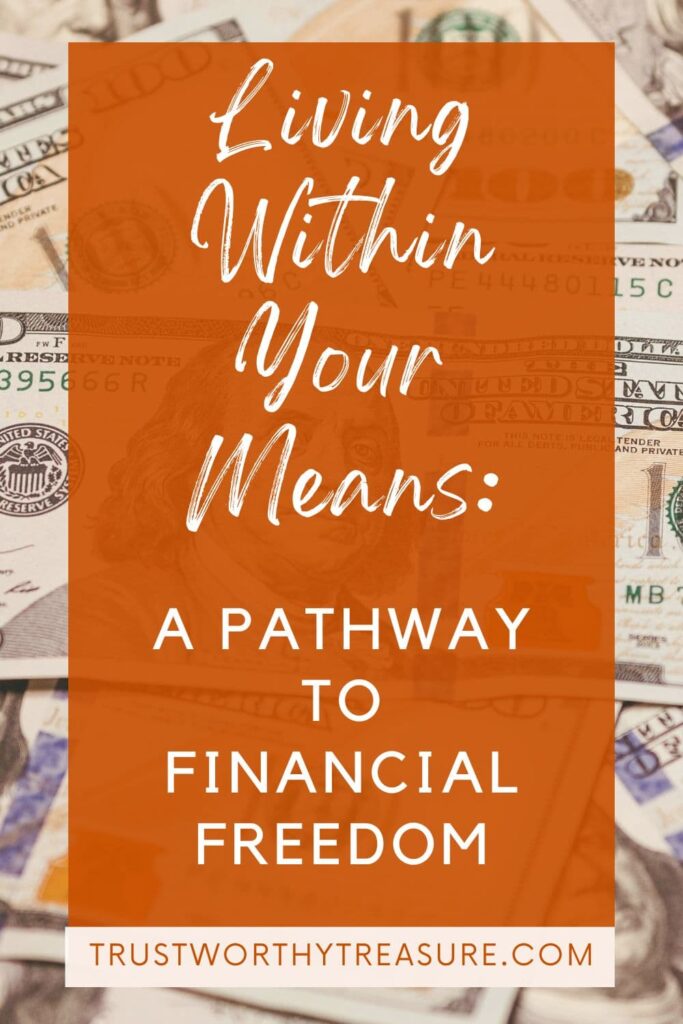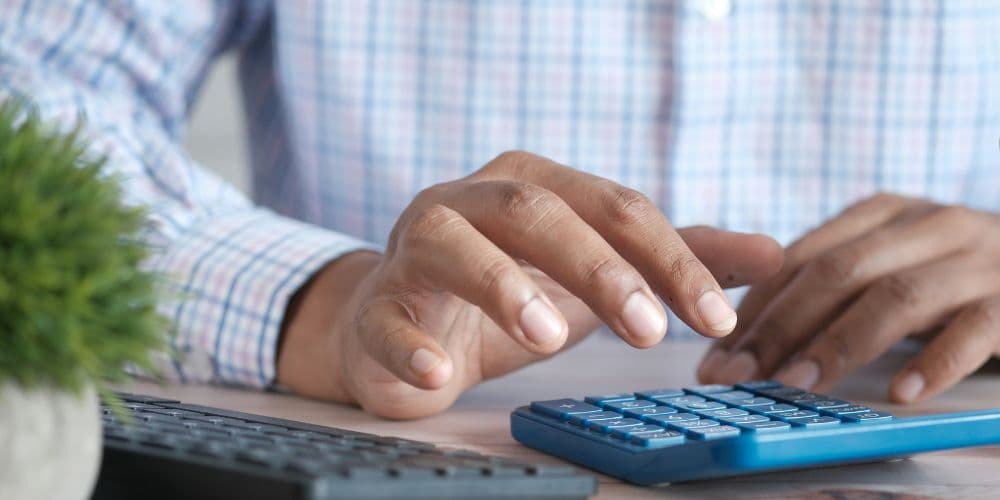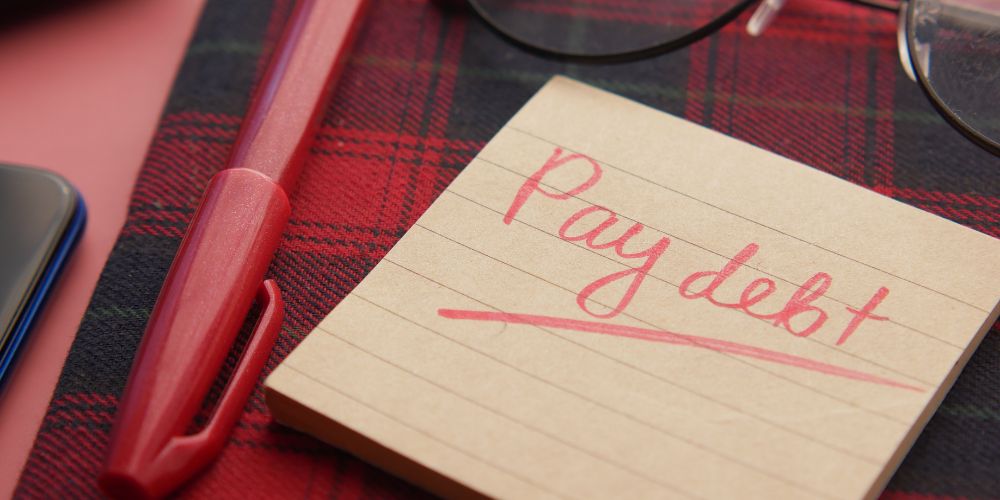What does living within your means even mean?
Ultimately – it is living on less than you make.
You do this by knowing what you need versus what you want, creating a budget, and paying off debt.
Why does this matter?
If you are not living within your means currently, there may be many reasons – sudden loss of a job, not budgeting, or simply losing track of spending.
Not living within your means may be fun in the short term but will set you up for financial destruction later on.
How to figure out how to live within your means
This starts with knowing how much money you bring home and creating a budget for how to use it.
Figuring out how much money you bring home
This is your after-tax amount. Unfortunately, no one gets out of taxes so you should base your expenses around your after-tax income.
If you have taxes withheld, this will be the amount that hits your bank account. If you’re an independent contractor (or don’t have taxes withheld), it’s a good idea to save your taxes in a separate savings account for tax time.

Identifying needs
If you are just starting out figuring out how to live within your means, evaluate how you can save on your needs.
Needs are the basics for your life to function. Think housing, food, transportation.
Housing
Housing is likely your biggest monthly expense. Whether you rent or own, knowing how much your housing costs is vital.
To live within your means, you may need to consider moving to cut down on this expense (not easy these days)!
If you have yet to buy a house, make sure you set the budget for your mortgage – not the lender!
Food
Even though prices have risen, the food category is one of the easiest areas to adjust spending.
While it is time-consuming and complicated to move to save money, you can start saving money on food immediately.
Food is a category that can be a huge variable. It is easy to spend a lot on food but also simple to drastically cut back on expensive food.
Health & Medical Expenses
This includes copays, medication, vitamins etc. While there may be some ways to cut down on expenses, this is a category that should remain a priority.
Insurance
Have your health, car, homeowner’s, or renter’s insurance in place. It may be cheaper in the short run to go without insurance, but it can be very costly in the long run.
Transportation
Similar to food, this is an expense that is easy to inflate. While you may need a car, you don’t need an expensive car to get where you need to go.
Evaluating wants
A lot of things may feel like needs that are not
New clothes, getting hair done, coffee out, — all the stereotypes – We all have things that are easy to classify as “needs” that are not.
For example, I went to the thrift store a couple of months ago because I “needed” new workout tops. After I got home, I realized I could barely fit all my workout tops in my drawer!
What is it for you?
You may have to take a season of cutting back on wants
If you get to the point of living within your means and have some bandwidth, you can always pick up some more wants – but don’t be surprised if your priorities change!
Creating a budget
This is vital to figuring out how to live within your means.
I’ve heard many people say they don’t need a budget because it’s something you need only if you don’t make much money.
The reality is that a budget is critical to knowing how much money you have and where it’s going, no matter what your income is.
Creating a debt payoff plan
The mentality of “the monthly payment is so low” is destroying your ability to live within your means. It also tends to contribute to stress and anxiety.
Creating a debt payoff plan with small actionable steps is a vital step in living within your means.
Perspective on debt affecting the ability to live within your means
Debt feels like free money
Debt is an easy option when you want (or legitimately need) to buy something. The messaging in our culture translates debt to “one small monthly payment” so it often feels like free money that you worry about later.
Learn to take the option of debt off the table. While I use credit cards, I always pay the balance off monthly. I’m talking about debt feeling like free money when you carry a balance.
Do the math before borrowing
So often, we start our adult lives with student loans and possibly credit card debt or an auto loan.
We are told that this is what you need to do to have a successful life.
While going to college can be beneficial, the ball and chain of debt makes it hard to start on the right foot upon graduation.
No matter how old you are or your season of personal finance, look at how much interest you will pay if you take on more debt before signing the dotted line!
The price of many different purchases can quickly balloon due to interest if you don’t take this step.
“I’ve worked hard and deserve…xYZ”
Unfortunately, not if you don’t have the money for it. I’ve heard of many people rewarding themselves with a big purchase after graduating college or getting a new job – but paying for it with a credit card or loan!
If you can’t afford the gift for yourself then you don’t “deserve” the gift. At least, not at this time.
While it may be gratifying to reward yourself with an expensive gift, it can cause stress in the long run if you are carrying debt in order to buy it.
Practical ways to live within your means



